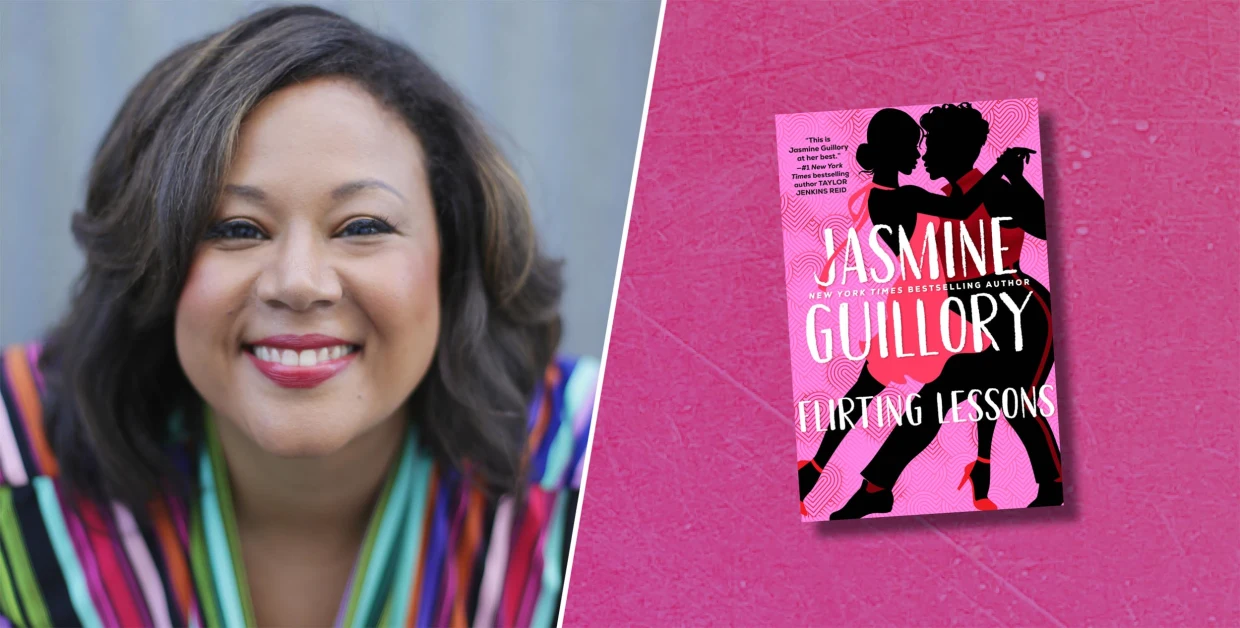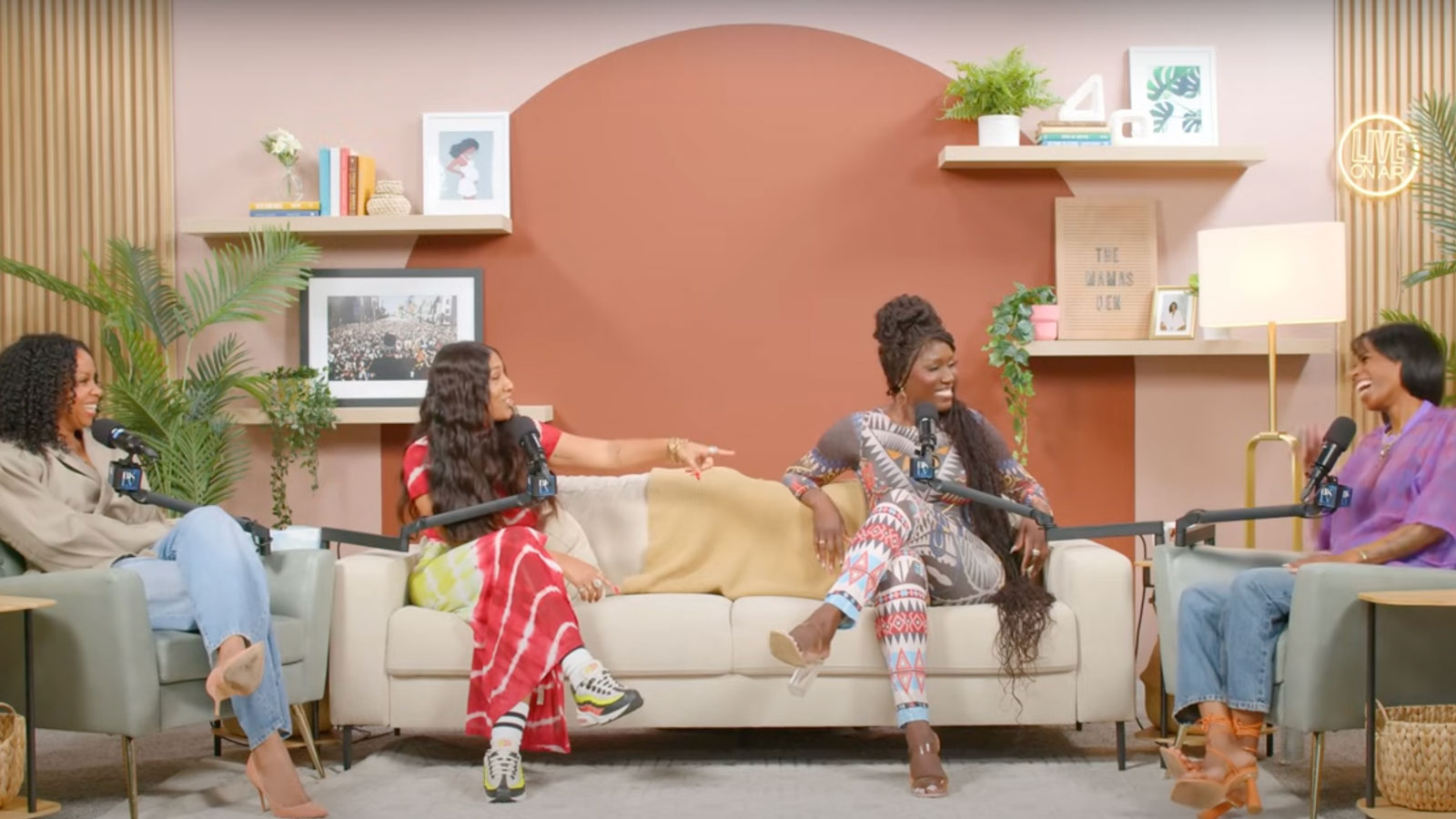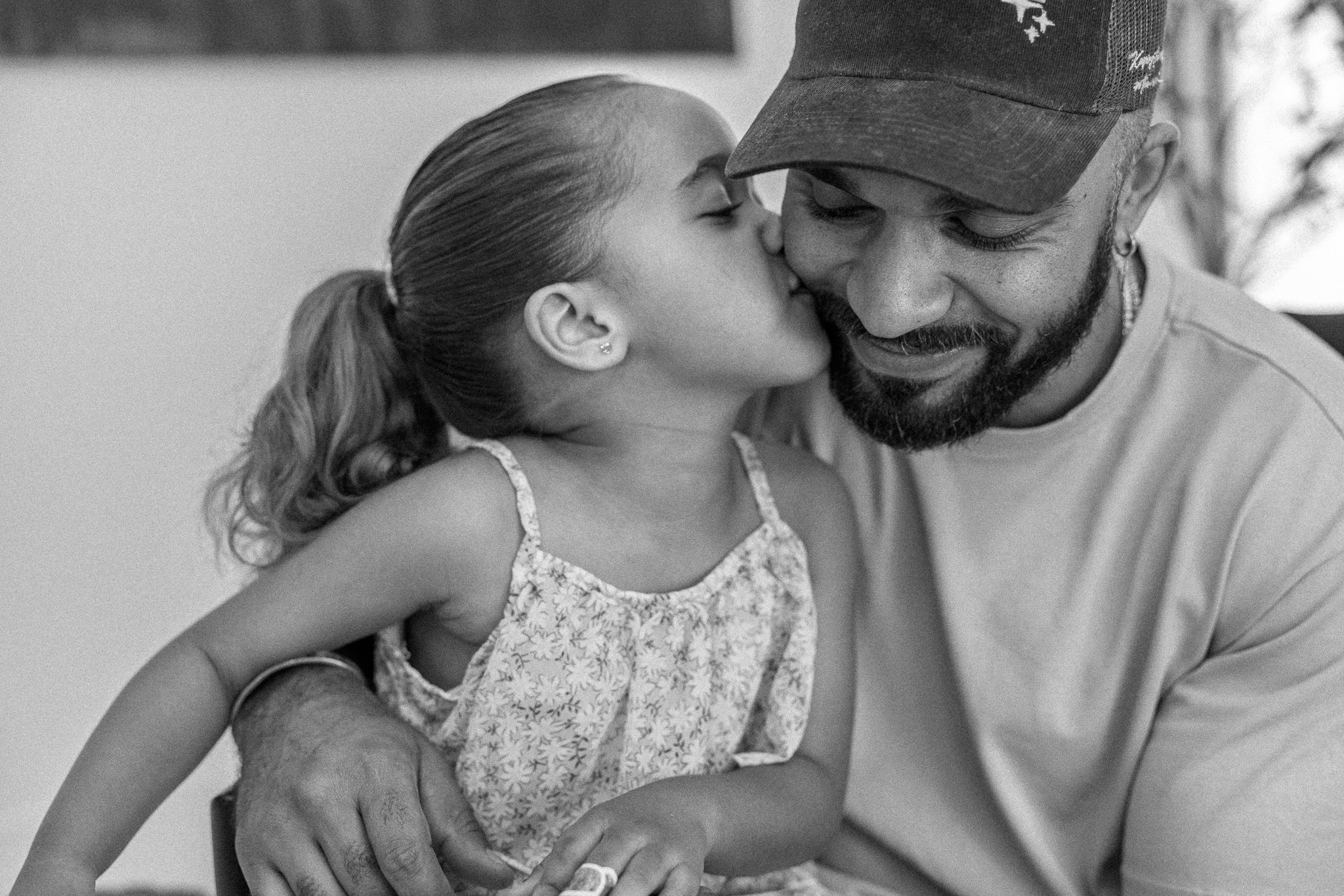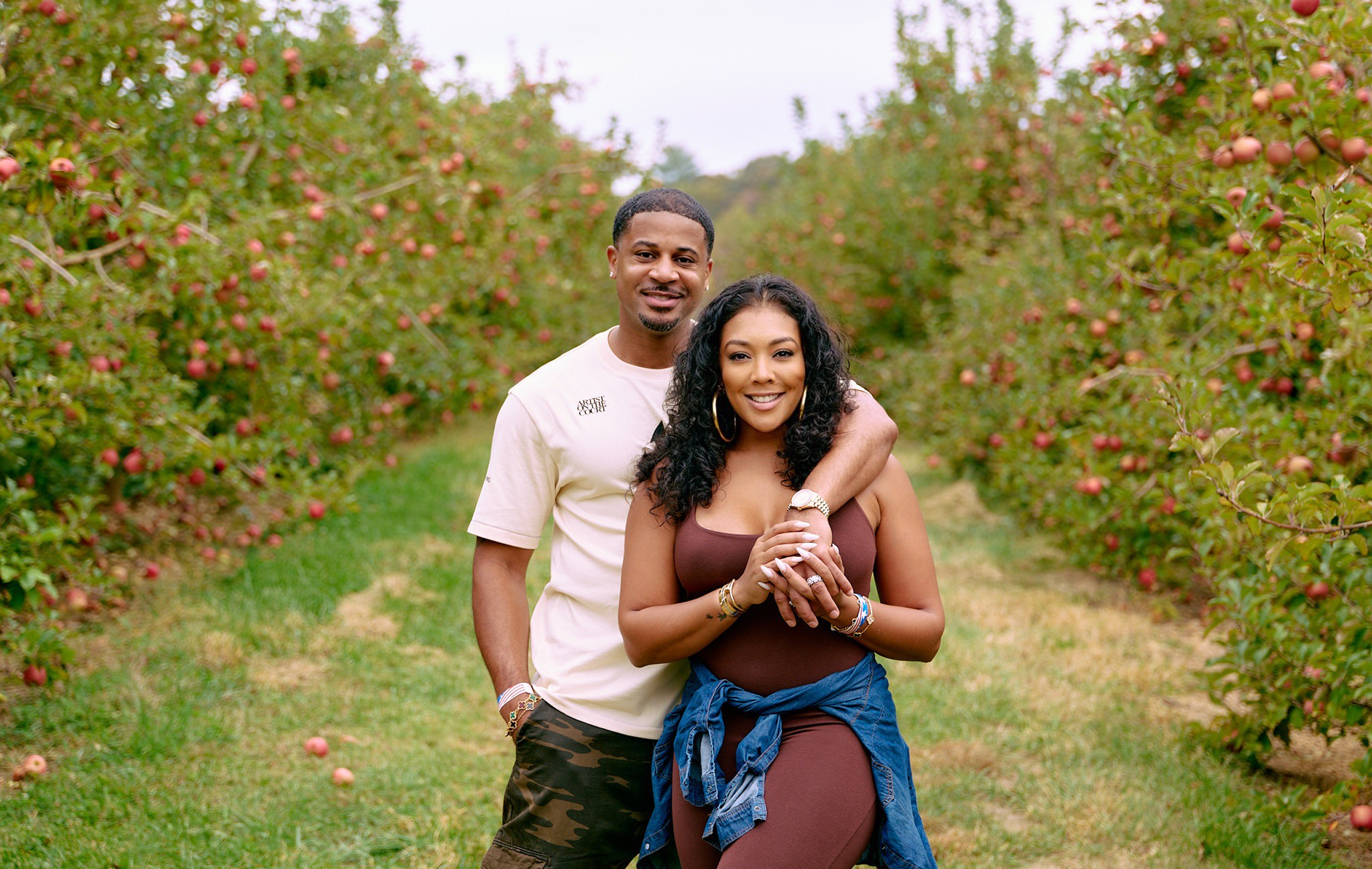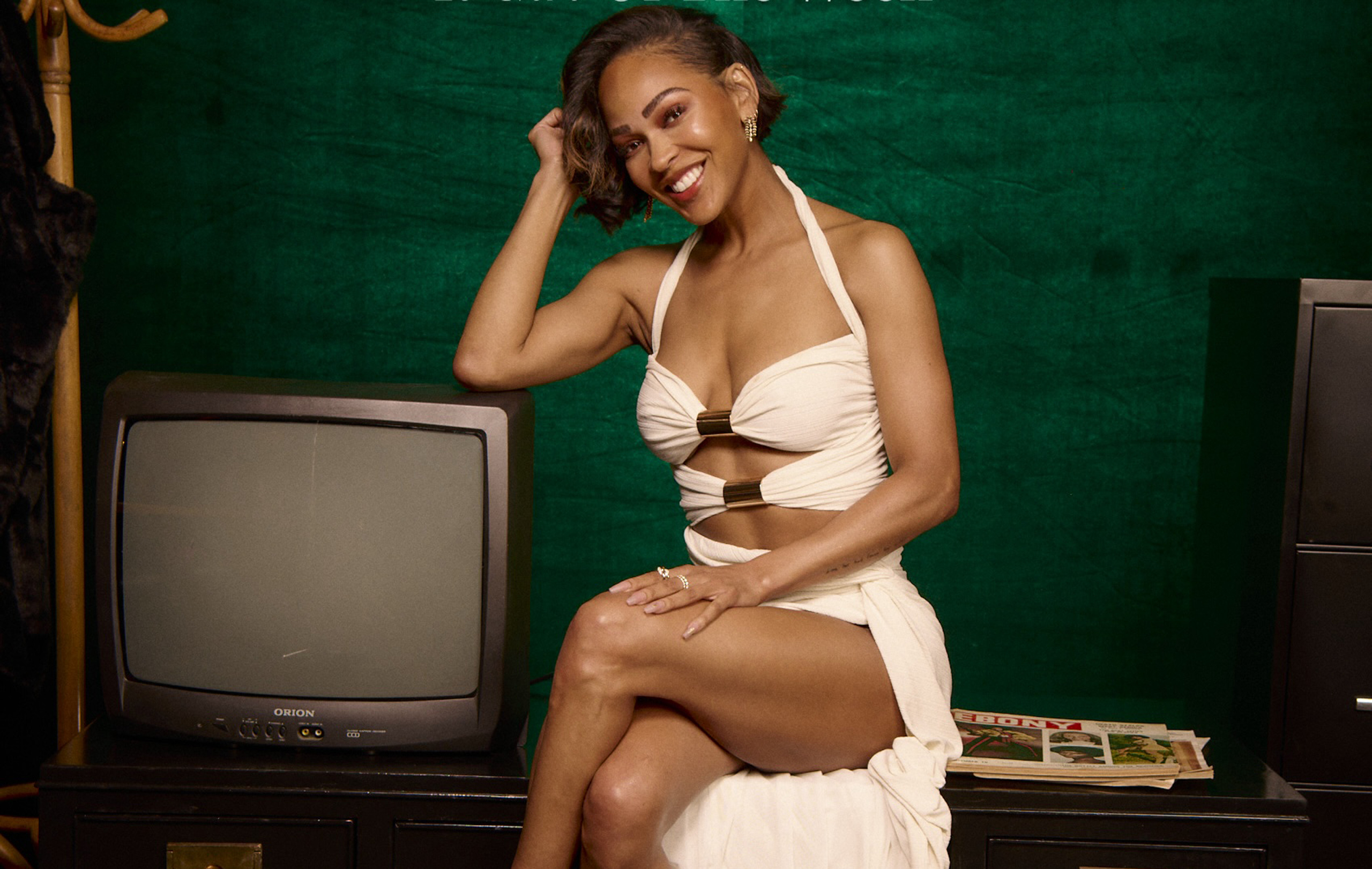
Couch-Conversations
A future with no marriage? Sounds like a dystopian hell to me. But Devale Ellis and (a few) guests have other ideas in this episode of Couch Conversations: “Is Marriage a Necessity?”
Have you ever read the dystopian novel A Brave New World? In it exists a seemingly utopian society where marriage was not only not a necessity, neither were families, committed relationships, or parents. Everyone walked around in bliss thinking completely of themselves, and society functioned in that way.
And, when I heard Devale Ellis, a man in a committed relationship, say “no” to the question “Is marriage a necessity?” in the Couch Conversations episode titled that very question, I thought, “Uh oh. Is the completely self-involved society of A Brave New World that far away?”
In the episode, Khadeen and Devale Ellis welcomed two couples to the couch: Alisha and Bam, married for five years and together for eighteen, and Kelita and Emanuel, married for four years and together for eleven. Devale was of the mindset that marriage was not a necessity, and the debate started from there.
Just hearing him say that was jarring to me. As stated, my traditional mindset went directly to the ails of the modern but dreary lives of the characters of the aforementioned fictional dystopian society.
But of course, that was me just extrapolating. After watching the episode, I calmed my mind and realized, men really do have a very different mindset to marriage compared to women. For the men on the panel, it seemed as if they thought marriage was a superfluous way to say that they loved their woman. “You know I love you” is a common refrain and was indeed spoken by Bam in the episode, and he felt he did not need a piece of paper to show that.
For the men on the panel, it seemed as if they thought marriage was a superfluous way to say that they loved their woman.
However, for the women, marriage boiled down to security and respect, not love. They knew they were loved, but they saw themselves as that partner who was with their man through the thick and thin of life. Many of the women had proven that for nearing a decade or more, yet these men did not seem to respect them enough, or, dare I say, cherish them enough, to offer that final level of commitment – marriage? Unacceptable.
Watching this episode was enlightening though my mind was absolutely confused at the male logic. When I was single, I thought marriage was not only important in a committed relationship, it was definitely a necessity. To me, marriage was a united front to take on the world with my spouse. We were in this thing together, therefore, I needed all three stars on the constellation of commitment checked: mental, spiritual, and legal. This was not only important to me in thinking about my potential mate but it also my way to measure the man. Could he give me that security I needed?
However, for the women, marriage boiled down to security and respect, not love.
In the video, these men were all in committed, loving relationships with the same woman for years but could not level up to marriage. The women were all waiting around for that secure sign of commitment; a loving relationship was not enough for them, they needed “that sheet of paper” that these men did not want to give them. Which begged the question, why were these men so commitment shy?
This is elaborated on in detail in the video which I highly recommend every woman watch because it really gives you insight into the mind of these men and their comfort level with marriage, as well as their hesitation to speak the truth to the woman in their lives before they got married. In all the couple’s cases, the men had started dating their spouse in college. Though they each knew that this woman was the woman they wanted to marry, many were still teenagers! They wanted to live life, date other women, grow into adulthood, and then marry them. Devale even used the analogy in a college class of wanting to put Khadeen inside a glass case and prop her on a shelf until he was ready. Khadeen was sure to say that she was not going to be put inside anybody’s glass case.
I completely understand the hesitation at that early point. In your early 20s, you are still trying to figure yourself out and how you fit inside this adult world. There is no need to throw another person into that mix. As Devale’s mother told Khadeen and Devale when they were dating, “You two are individuals; work on yourselves.” She was coming from a place of knowledge in that she got married very early. Khadeen mentioned that it almost looked as if she saw herself in them and was trying to offer informed advice.
Marriage is a necessity for the structure of the household.
Bam thinks marriage is a necessity for the structure of the household, though he did not always think that way. He explained that, in his and Alisha’s relationship, not marrying her all boiled down to his selfish needs and his selfish ways. He wanted to maintain his ability to run away, and, due to that immaturity, he almost lost Alisha for good. Alisha mentioned that Bam had a “one foot in, one foot out” mentality to their relationship that made it hard to plan for the future.
Counseling was an important venture for them in order to move forward. Bam, at first, thought counseling was corny. But after going to a few sessions, he started to realize that he was gaining comfort in the sessions in addition to learning new things about his wife. Soon, he looked forward to going in order to be enlightened on what he needed to do to make Alisha more comfortable in their relationship. Not only did counseling provide this for him, it also provided ways in which he and Alisha could better communicate with each other. Through counseling, Bam came to realize that marriage was bigger than any two individuals, which is where compromise came in.
Emanuel thought marriage was definitely a necessity. Even so, he and Kelita had a rough first year of marriage. Emanuel got engaged to Kelita in order to not lose her, and it felt to them both that they might be rushing into it. Similar to Alisha and Bam, they also went to counseling to work through their reservations and, in the end, decided to keep the marriage date. However, married life did not make all things rosy and they ended up separating six months into their marriage. It took eight months for Emanuel to get Kelita back. He was similar to Bam in that when he thought about his future, he always saw Kelita in it and knew that he had to have her in his life once again.
Khadeen wanted her children to see examples of committed love.
Each person on the panel got to marriage in their own unique way. Devale mentioned that he wanted to live differently as a man, which is why marriage was that next step for him. Khadeen said that children were her sticking point; she wanted her children to see examples of committed love. There was a spiritual aspect for Kelita who believed that marriage elevates the couple to another level where they are more open to receiving blessings. Emanuel realized that Kelita was the only woman whose mind he truly cared about. Bam wanted to put in the work for a strong secure household. And Alisha was prepared to be the strong wall she knew Bam needed.
So, is marriage a necessity? That is a debate for each couple to have before they get married. For the couples on this panel, yes, definitely.
Related Articles
Discover why Jasmine Guillory’s latest novel Flirting Lessons is a must-read—and how the author continues to redefine modern romance with layered Black heroines, real emotional depth, and Black literature that feel both magical and true.
Bozoma Saint John talks Black motherhood, grief, self-love, and finding joy again. Don’t miss her powerful conversation on building legacy and living boldly.
Tyler Lepley shows the beauty of Black fatherhood, blended family life with Miracle Watts, & raising his three children in this Father Noir spotlight.
Featured Articles
When Elitia and Cullen Mattox found each other, they decided that they wanted their new relationship together, their union, to be healthier and different.
Celebrate their marriage and partnership with the release of the documentary “Time II: Unfinished Business”
Our intent is to share love so that people can see, like love really conquers everything. Topics like marriage and finance, Black relationships and parenting.
HEY CHI-TOWN, who’s hungry?! In honor of #BlackBusinessMonth, we teamed up with @eatokratheapp, a Black-owned app designed to connect you with some of the best #BlackOwnedRestaurants in YOUR city – and this week, we’re highlighting some of Chicago’s best!
The vision for our engagement shoot was to celebrate ourselves as a Young Power Couple with an upcoming wedding, celebrating our five year anniversary - glammed up and taking over New York.
Meagan Good and DeVon Franklin’s new relationships are a testament to healing, growth, and the belief that love can find you again when you least expect it.

